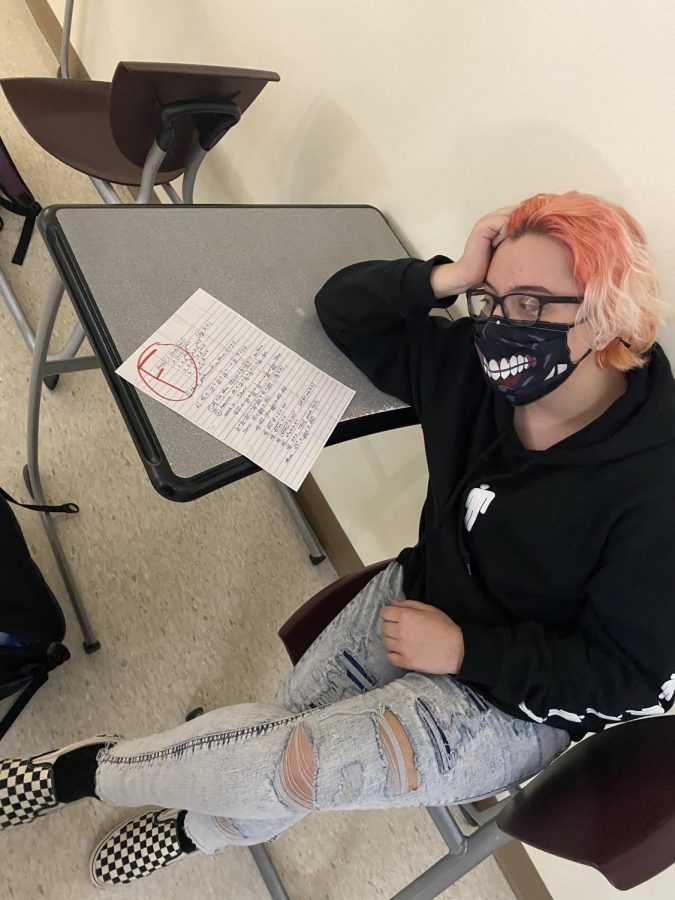The Other Pandemic – Failing Grades
December 17, 2020
You log into Tyler SIS to check your grades when it hits you: The big fat F. Many students all around the country are struggling with their classes.
According to Mr. Joe Veldhuizen, 50% more HHS students currently have at least one F compared to this time last year. What is causing these grades?
Teachers are noticing a trend in these failing grades.
“One camp is the disengaged. They either don’t want to do school or are so overwhelmed by the current state of things that they can’t engage,” Brooke Barfield, ELA teacher said. “The second is disillusioned. They believe something will magically happen and that there will not be repercussions for their failure to participate.”
When HHS first closed in March, the virtual learning environment quickly became sort of optional with the grading system being changed to pass-fail. This optional mentality carried into this school year.
“I would have to say that some students thought that grades would be done like they were in the spring,” Michelle DeFosset, Math teacher said. “They were thinking that those zeros would be ‘forgiven’ once they returned to school. Unfortunately for them, they were not and now they have this huge hole they are trying to dig themselves out of.”
Another problem is the teachers are having trouble engaging with their virtual students.
“Since I don’t physically see or hear from most of my virtual learners (black screens, no responses), it is difficult to help them or motivate them to get assignments done and turned in,” Amie Branch, Science teacher said.
This year has taken a toll on all of us. Many students are struggling with their mental health, which can hinder motivation. There still is a chance to bring your grades up.
“What I would say to a student right now who is struggling, reach out, reach out to a teacher, to a guidance counselor, a principal, or a peer,” Superintendent Dr. Kevin Carl said.
Many teachers have changed their policies when it comes to late work and is taking the time to reach out to their students.
“I am trying to stay in constant contact with the parents/guardians,” DeFosset said. “Communicating with the students what they still can do. Allowing extra time (which I hardly ever do) to complete and submit assignments. Trying to make myself more available to students after school either in person or on zoom.”


